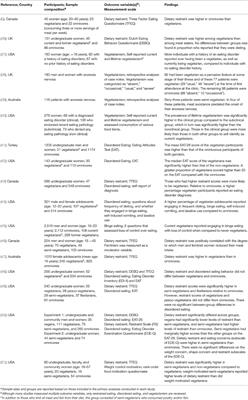CORRECTION
Published on 13 May 2022
Corrigendum: A Review of the Use of Linear Programming to Optimize Diets, Nutritiously, Economically and Environmentally

doi 10.3389/fnut.2022.850033
- 1,979 views
- 2 citations
24k
Total downloads
197k
Total views and downloads
CORRECTION
Published on 13 May 2022

MINI REVIEW
Published on 10 Jul 2018

REVIEW
Published on 21 Jun 2018

REVIEW
Published on 14 Jun 2018

ORIGINAL RESEARCH
Published on 15 May 2018

REVIEW
Published on 06 Jan 2017

